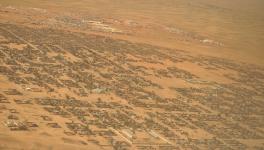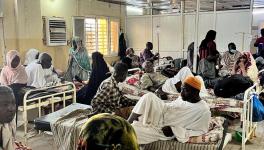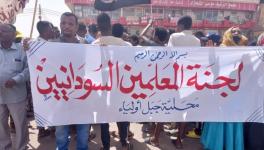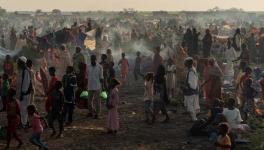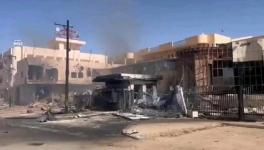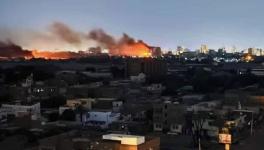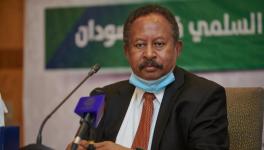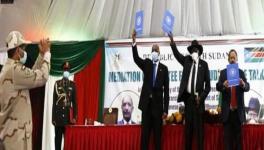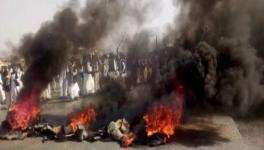Emergency Declared in Sudan Following Anti-Government Demonstration
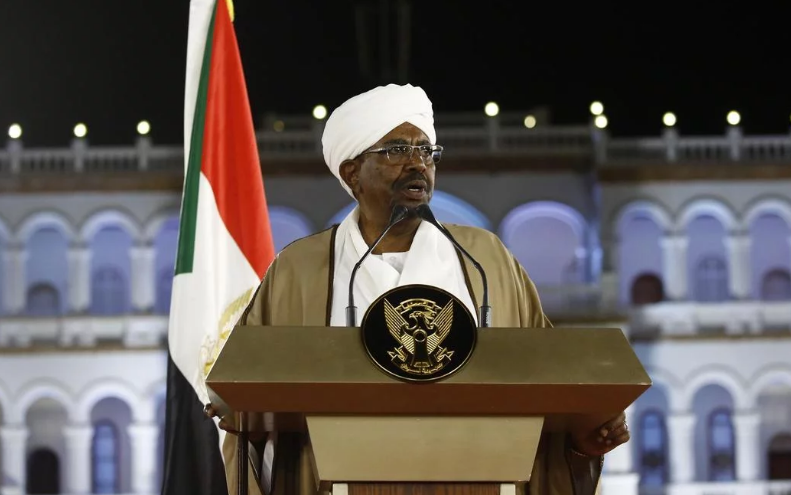
Activists say the emergency is to curb the spread of a popular uprising and give the security forces more powers to enact punitive actions (Photo: AFP)
A state of emergency was declared in Sudan by president Omar al-Bashir on February 22, after he dissolved his cabinet and local governments for at least one year. Following the announcement, al-Bashir issued two decrees which set up a caretaker administration. He appointed 16 army officers and two security officers as the new governors for the eight provinces of the country.
However, many activists said that the decision is intended to curb the popular uprising as the implementation of emergency will give the security forces and the military “the right to search without warrant, to raid houses and arrest anybody they deem a threat to the country’s national security and economic development and stability”.
Al-Bashir’s term is set to finish in 2020, and he has promised time and again not to make new runs for the presidency. He can not run for a third term unless he makes amendments to the constitution. His declaration came soon after a parliamentary committee that is amending the constitution to scrap presidential term limits cancelled its meetings.
Anti-government demonstration rocks Sudan
On Friday, a large number of people gathered outside the Al-Sayed Abd al-Rahman mosque in Kassala to demonstrate against the al-Bashir government. The protesters chanted anti-government slogans, such as “the revolution is the choice of the people”. The security forces hurled tear gas canisters and live ammunition at the protesters, and arrested scores of them. Activists estimate that over 60 civilians have been killed in the renewed mass uprising that began in December 2018.
Protesters demanded that those responsible for killing Ahmad El Kheir, the local teacher who was mysteriously found dead after security forces arrested him on January 31, be punished.
The Friday demonstration, in the Omdurman city, was led by the opposition party, Umma, and is described as the latest in what have become near-daily protests in Sudan. The protests were triggered by cash shortage and increase in commodity prices, which has affected the daily lives of the Sudanese people, but soon transformed into anger against al-Bashir’s 30-year rule. Ever since the country started expanding its money supply in an attempt to finance its budget deficit, it caused spiraling inflation and a steep decline in the value of its currency.
After coming into power in 1989 through a military coup, al-Bashir has been accused of curbing people’s movements and using brutal force against dissent. His regime has been engaged in a civil war with rebel groups in the Darfur region since 2003.
For orchestrating a campaign of mass killings, rape and loot of civilians in Darfur in the course of this war, al-Bashir was convicted of genocide, crimes against humanity and war crimes by the International Criminal Court (ICC), which issued an arrest warrant against him in 2009.
However, in 2011, another campaign of atrocities began as the government launched a military campaign against the Sudan People’s Liberation Movement-North (SPLM-N) rebels in the regions of Blue Nile and South Kordofan, known as the ‘Two Areas’. The violence against the rebels also carried over to urban centers, where protesting university students were accused of having links with them.
Get the latest reports & analysis with people's perspective on Protests, movements & deep analytical videos, discussions of the current affairs in your Telegram app. Subscribe to NewsClick's Telegram channel & get Real-Time updates on stories, as they get published on our website.










